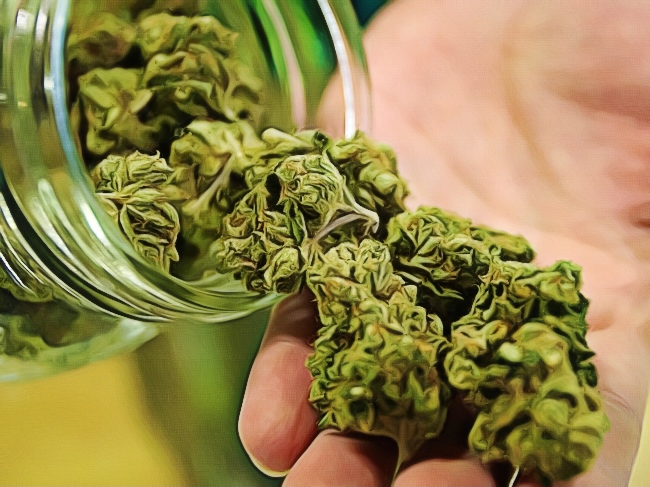Cannabis or marijuana is slowly but surely becoming a part of our everyday lives due to its legalization in many states across the country. It has quickly transformed from being taboo to a billion-dollar industry that’s expected to experience more growth as it is projected to balloon into a $35 industry by the year 2025. Considering how widely used it is, it’s rather concerning how little people actually know about marijuana. This lack of knowledge can put people in difficult situations and can lead to the drunk being misused. Misuse of any drug, despite its legality, is still something that has to be avoided at all costs.
One aspect of marijuana that remains unclear for a majority of the population is what type of drug marijuana actually is. To help remedy this, we thought it would be useful to have an in-depth discussion on which type of drug marijuana falls under. If this is something that you’re interested in, read on as we discuss whether marijuana is a depressant, stimulant, or hallucinogenic.
What Are the Main Drug Types?
Before we talk about what type of drug marijuana is, it’s important that you understand the differences between the main drug types. Here are the four-drug categories that drugs usually fall under:
- Depressants: Despite their name, depressants don’t necessarily make users feel depressed. Depressants are drugs that slow your brain function. They have also been observed to significantly reduce stimulation. Drugs that fall under this category affect the central nervous system and slow down communication between the brain and the body. Examples of this type of drug include alcohol, alprazolam, and barbiturates.
- Stimulants: Stimulants speed up communications between the body and the brain. This can make people feel more alert and energetic. And while this may seem positive, misusing stimulants can lead to over-stimulation. Over-stimulation can lead to anxiety, panic attacks, seizures, and paranoia. Long-term abuse of stimulants has also been observed to have long-term side effects. Examples of this type of drug include ADHD medication, cocaine, and methamphetamine.
- Hallucinogens: Hallucinogens refer to a group of drugs that warp or alter a person’s awareness of their surroundings. As the name suggests, these types of drugs induce hallucinations among their users. Some hallucinogens also have a dissociative effect that can make users feel like they are disconnected from their bodies and the world around them. Examples of this type of drug include LSD, psilocybin or magic mushrooms, and MDMA.
- Opiates: Opiates are strong painkillers that also give off a feeling of euphoria. These drugs are notorious for being extremely addictive. So much so that the number of drug overdoses related to opiate abuse jumped by nearly 30% in 2020. Examples of this type of drug include heroin, prescription painkillers, and morphine.
Which Drug Type Does Marijuana Fall Under?
Based on the description of the types of drugs alone, marijuana can be easily identified as a depressant. However, things aren’t as simple as that. While marijuana can’t be classified as an opiate, it can easily fall under the other main drug types. Due to how varied its effects are, marijuana can be classified as a depressant, stimulant, and hallucinogenic.
It’s not difficult to see why marijuana can be classified as a depressant. Using marijuana slows overall brain function and tends to have a calming effect on the user. In some cases, it can even induce sleepiness.

On the flip side, marijuana can also be a stimulant. Marijuana has a different effect on each person. While it usually imparts a relaxing or borderline sedative effect, some people feel overly alert after using marijuana. In fact, this alertness can even turn into nervousness or anxiety.
Marijuana’s hallucinogenic effects are well-documented in popular culture. However, it’s important to note that this may be a little overblown. While weed can distort perception, rarely does it ever cause users to hallucinate. For the most part, marijuana’s hallucinogenic effects are limited to its ability to alter one’s perception of time and space. Users can also sometimes feel dissociated when under the effects of marijuana.
What Are the Side Effects of Marijuana?
Given that it falls under multiple drug types, marijuana also has a varied list of side effects that are associated with these drug categories. Here’s a list of side effects that stem from misuse:
- Paranoia
- Slurred speech
- Nausea
- Reduced motor coordination
- Anxiety
- Disassociation
- Increased heart rate
- Panic attacks
The way this drug is consumed also affects the types of side effects associated with it. Smoking weed irritates the airways and increases the risk of respiratory conditions. If you opt to consume weed mixed in with food or beverages, you may take more than what you initially intended which can lead to more extreme cases of the side effects listed above.
Due to the many side effects attached to marijuana abuse, it’s vital that you are extremely cautious when handling this drug. What makes weed particularly dangerous is the fact that users build up a tolerance to it over time. This causes them to use more of the drug to achieve the desired effect. This makes misuse far more likely and will lead to amplified side effects that could potentially be dire for users. If you or anyone you know is having problems with abuse, be sure to seek out an addiction center so you can get the help that you need.
Can You Overdose on Marijuana?
Now, you may be wondering if it’s possible to overdose on marijuana. The short answer to this is no. The Centers for Disease Control and Prevention highlight that it’s extremely unlikely to have a fatal overdose due to marijuana. However, it’s vital that you don’t misconstrue this statement as this doesn’t mean that marijuana is harmless. Just like any other drug, misusing and abusing marijuana can lead to a slew of physical and mental issues. In some cases, abusing marijuana can also lead to accidents due to reduced motor coordination.
Can You Experience Withdrawal From Marijuana?
Many of the drugs in the same category as marijuana tend to cause withdrawal symptoms among their users. Despite the withdrawal from weed being uncommon, it does still happen. People who use it regularly experience withdrawal when they suddenly stop using this drug.
This is because the brain becomes accustomed to receiving a regular supply of delta-9-tetrahydrocannabinol, which is the main chemical that is responsible for the drug’s psychoactive effects. Marijuana withdrawal can manifest in different ways such as irritability, difficulty sleeping, and general restlessness.
Conclusion
While it is legal in many states, this doesn’t mean that you should be careless with how you use it. Just like any other drug, weed will have its downsides when misused. Considering that marijuana can be a depressant, hallucinogenic, and stimulant, it’s important to be extremely careful with it.
Misusing this drug can lead to a dependence on it that will cause problems for you in the long run. If you feel like you’ve become dependent on it or any other drug, be sure to seek out professional help as soon as possible.
Sources:
http://edition.cnn.com/2010/HEALTH/expert.q.a/01/19/adhd.appetite.raison/

